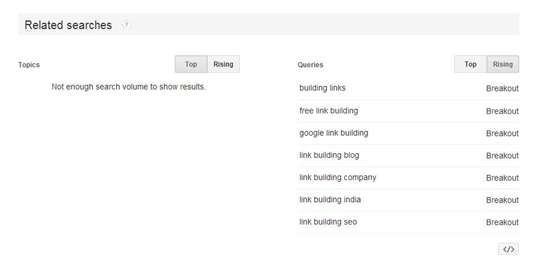Why Is the Competition Getting Authority Links and You Can't?

If you have a website that exists to provide useful information to readers without any intention of monetizing the traffic or peddling your product or services, you can get some pretty awesome back links. The problem is, without a monetization strategy or a promotional intent; you are not going to be rewarded for your efforts.
If you are passionate about a topic and blog as a hobby, this shouldn't be an issue, if you however are like most webmasters; you need your Web property to make some money for you. Making money is a great thing to do and if you can do it by writing about something you love, even better. The downside of this is that authority sites are not likely to link to a promotional or sales page but if you can get them to link to your website, you can dominate your competition while building enough trust to keep your site out of the penalty box in Google for a long time.
So how can you get authority sites to link to your online shoe or nail polish store?
Power Pages, Anchor Pages, or Whatever Else You Want to Call Them!
The concept of power pages or anchor pages is not a new concept but for a while, the ability to build high volume, low quality links and still rank a site, lead people away from taking advantage of this strategy.
What is a Power Page?
A power page has had many names over the years but regardless of what you know them as, it is a page that delivers exceptional value to the reader and avoids being sales focused or promotional in nature. For many of you, your blogs can be used as power pages, but not if you are churning out a high volume of posts with just average content. It is for this very reason I say that you need to start writing less and promoting more! Write less content? Madness I know but it works! Now, let's look at what makes a great power page, starting with an example.
As many of you know, Brian Dean of Backlinko is an amazing link building strategist and offers some incredible value on his blog. One page that really stands out to me is https://backlinko.com/ecommerce-seo which discusses how to build links without content, a topic going against the current content focused link building craze. I recommend taking a look at this page to see what a good power page looks like after we discuss the key steps for setting up your own power page.
1. Figuring Out What to Write About
You can make an amazing page but if nobody cares about the topic, you are not going to get very far with outreach link building. In order to find out what to write about, you need to start by researching what the competition has already done and the response it received. Finding a good topic to cover isn't hard to do. Here are a few easy ways to find a good topic for your power page.
Current Events
Is there something happening in your niche that is trending online, making the news or creating a buzz? If so, this could be a good topic to cover.
Frequently Asked Questions
If you are like me, you will get asked some questions over and over again. Creating a definitive and well-researched answer to this question can make for a great topic and is sure to generate some back links.
Keyword Search
Pretty simple stuff here, just Google some keywords related to your potential topic and look for the top pages, these are often the authority niche blogs and can be full of good content ideas.
Blog Aggregators
Instead of searching individually, you can go to sites like AllTop that curate the top blogs. Look at 5-10 blogs in your niche and look for common themes that they cover. This is a good indicator of what is most popular in your niche at the moment as well as what type of content is likely to attract the attention of authority blogs.
Keyword Search + Google Trends
If you have an idea but are not sure exactly what to cover, you could do a search for keywords related to your idea and once you have a list of them, head over to Google Trends and see if any of your terms are rising or "breakout" status. Alternately, you can also see if any of the popular searches are related to your niche for additional ideas.
By now you should have a pretty good idea for a piece of content that is of interest in your industry so now it is time to create the content for your power page.
2. Creating Link Worthy Content
The key to this entire strategy is to now create a piece of content that is better than the current content on the same topic, more recent or takes a unique angle.
If the topic you are covering is hot at the moment, updating an existing piece of content is not likely to work so you will need to figure out how to write a better piece of content or one that takes a unique angle. Likewise, if you cover a topic that has been hot for a long time, you are likely to find an article that could be updated successfully.
Every niche is different so you will have to review some content from your niche to determine which approach to take. Regardless, here are a few steps that almost always make content more link worthy.
Expert Roundups
Even if you are an expert in your niche, other experts will have differing opinions or approaches. By gathering input from numerous experts you are increasing the likelihood of gaining links to and social promotion of your content. Each person contributing to your post is likely to promote it to their audience and people who find it via search or referral are more likely to link to it as a credible source of information.
Here's one good expert roundup example: https://www.clambr.com/link-building-tools/

Research Pieces
The Internet is full of people claiming things to be true but most of the time they do not have any research or proof to back up their claims. If there is a controversial topic in your niche (such as black hat SEO in mine) conducting a case study that proves or disproves a popular theory can attract a lot of attention and links. If you cannot conduct a case study yourself, using secondary data from credible sources can be another good way to add credibility to your content.
Here is a good example of research based content: https://www.stonetemple.com/measuring-google-plus-impact-on-search-rankings/
Bucking the Trend
People get tired of hearing the same point of view every time. If you have a unique approach to handling a problem or completing a task, this can be a good way to gain attention and links to your power page. If your approach is controversial you should be prepared for some backlash but in most cases, the results will still be positive.
Matthew Woodward has a very popular marketing blog and he often goes against the trend of the SEO community, here is a good example of a controversial post that got a lot of interaction: https://www.matthewwoodward.co.uk/tutorials/build-rank-spam-site-beat-google-updates/
Partnering for Content
Each of us has strengths and weaknesses and when it comes our profession, the same is true. If you can find someone whose expertise is in your weakest areas, teaming up to create a piece of content can be very fruitful. As an added benefit, you will be advertising to his following and yours for added exposure.
Here is an excellent collaboration piece: https://www.quicksprout.com/the-advanced-guide-to-link-building/
We have now covered how to find a topic as well as how to generate content that will attract links, now let's talk about how to promote your power page for maximum exposure.
3. Seeding Your Content to Grow Your Link Profile
Since you are armed with a stellar piece of content that you know is popular in your niche, you are now ready to let others know about it and hopefully attract some authority links in the process. Here is how I like to promote a new page or post.
Outreach
Although far from new and exciting, outreach link building works. In order to increase your chances of success, look for sites that link to your type of content regularly. You can search a few keywords related to your power page and pull their inbound link profiles to gather a list of sites to reach out to.
Guest Posting
Old school (bulk low quality posts) guest posting is on the decline and several sites are now "no longer accepting guest posts". The good news is that if you have a valuable piece of content to offer, you can still get it published on plenty of quality websites.
Maybe it won't be in the traditional guest post format but if you get the link; who cares? Just let the webmaster know you would love to share your content with their readers and promote to your audience as well and you can likely come to an agreement about how to do so.
Social Media
Social media continues to become more ingrained into our daily lives and as such, failing to promote your content socially would leave a wide audience untapped. Focus on building a following on just a few social sites (use the site with the highest membership rate from your target demographic).
Take it a step further by using tools such as BuzzBundle which will allow you to track brand mentions and reach out to those already talking about you to promote new content. You can also use Google Alerts to monitor new mentions of the keyword or topic your content is about, this will give you more opportunities to locate and reach out to people who will potentially link to or share your content.
Once you get the hang of this process, link building will become much easier and before you know it, authoritative links will become a solid part of your back link profile. Using the three simple steps above you can build enough links to rank any website and this is as close to white hat SEO as building links can be.
What Do You Think?
Have any of you used power pages to successfully generate authority links to your site? What is the best link you have ever gotten?










